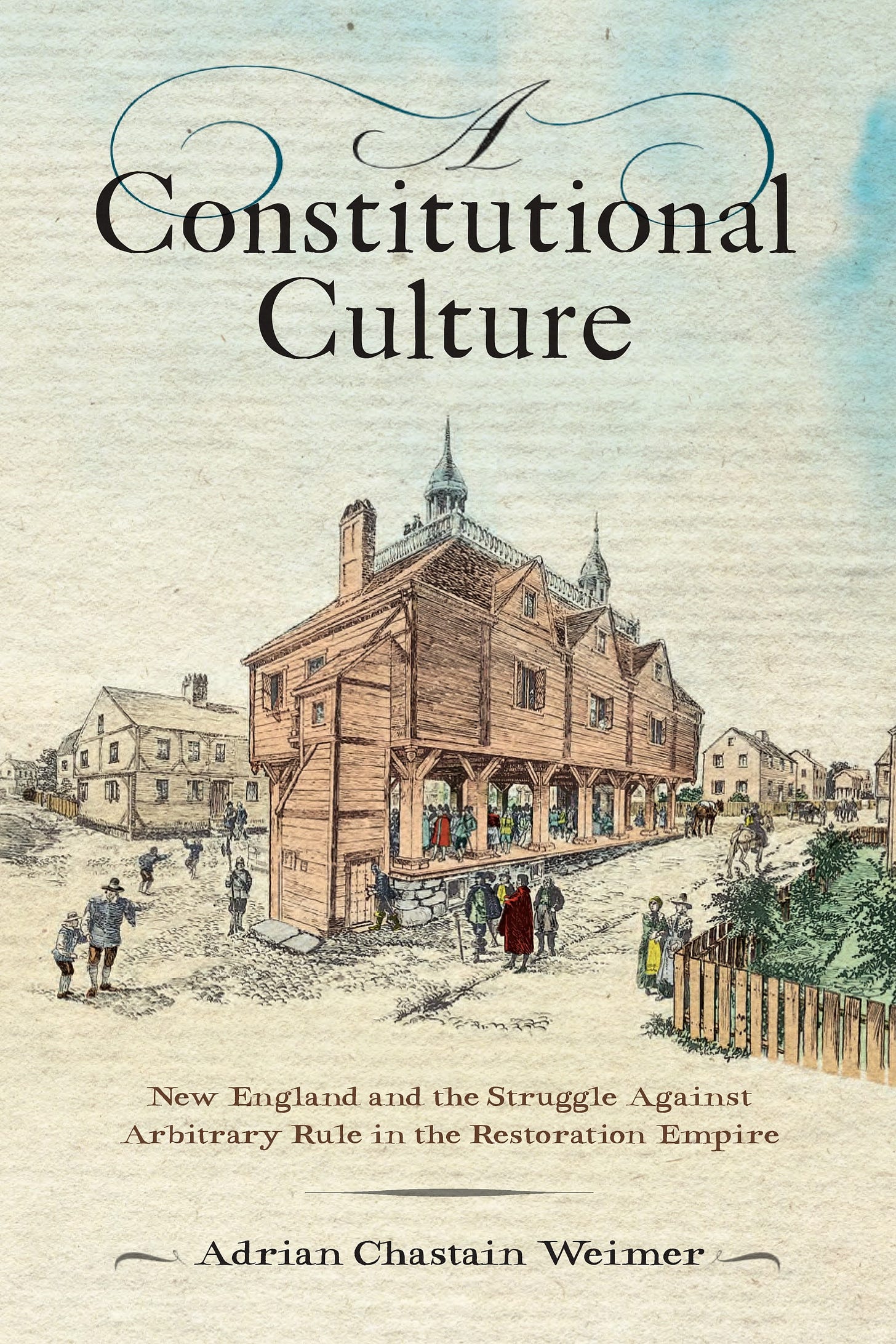Read and Think: Colonial Puritanism and its Constitutional Paradigm
Book Review No. 2
Hello readers,
What do you think of when you hear constitutional policy and self-representative rule? If I took a guess, I’d say multiple things may come across your mind: Benjamin Franklin, the American Revolution, “no taxation without representation,” or maybe the year 1776. The origins of the American institutionalized government naturally connect to ideas about constitutionalism.
Interestingly, though, our American understanding of constitutional policy, conviction, and order does not begin in the eighteenth century, but rather when its seeds were placed a hundred years prior in the colonial period of New England. The premier thinkers of the American Constitution were not completely innovative in their work, but were, of course, borrowing from those who inspired, influenced, and preceded them in similar authoritarian dilemmas.
Below this line I have already written a full published review of this book in the link below:
Book Review of A Constitutional Culture
Check out the published review and continue reading below for a few additional thoughts on this work.
The English Atlantic world was a period of change, stress, and political brawling in the 1660s. As Charles II ascended to the throne after the collapse of the Puritan Commonwealth in England, his rule and vision threatened many of the Puritan magistrates and pastors in the New England colonies. Although the Stuart regime did not want to strongarm colonial religious institutions into bridging with the Church of England (at least, in the early years), Charles strongly desired to consolidate colonial political, economic, and military power in step with his more global project of English supremacy.
Weimer’s argument is simple. She articulates clearly that the New England leaders, particularly in the Massachusetts Bay region, resisted the Stuart regime’s policies by emphasizing their colonial charters, which were signed and affirmed by Charles I before his assassination. These charters were the lifeblood of English religious, political, economic, and social liberties in the colonial world, and justified intentional acts of resistance towards arbitrary rule.
Here are some of the thoughts I had in reading the book.
One of the most fascinating sections of the book, which are some of the first chapters, is its emphasis on Puritan religious culture in the church, pulpit, and news during this time. Strange accounts of aerial phenomena and miracles exploded in newsletters that heightened the religious imagination of political intrigue and end-time doom.
To some degree, the fascination with mysterious flying objects and unexplainable sightings of today’s world are not so different from that of our colonial predecessors. The discussion of UFOs (or UAPs) and glowing, fast-moving objects within recent government sessions are not entirely dissimilar to the events of the 1660s New England. English Puritans, though, often interpreted many of the baffling signs of the sky theologically as omens of doom, judgement of God, and the end of the world.
Puritan New England seemed to understand greater spiritual implications in the strange phenomena over our Western naturalistic, secularist considerations. The worldview since then has shifted to a dramatic degree, but the level of interest in unexplainable events has clearly not. We are still mesmerized by the phenomena in the sky and its potential apocalyptic implications.
For better or for worse, these experiences are not wholly new. For all of our technological advances, our imaginations are not so different from our colonial predecessors.
Another enjoyable section is the gathering of the local churches for fasting and praying during times of political change and uncertainty.
Politics tends to be a no-go in the modern evangelical pulpit. While I am not necessarily advocating for the sponsoring of political leaders in church sermons, it is important to think about how we can pray for our leaders, connect biblical truths and virtues to our voting patterns, and be united as a local church under one Lord while righteously serving, or resisting, earthly rulers. The Puritans pastors did not restrain from proclaiming biblical truths in resistance to earthly tyrants.
The Christian prophetic voice in the modern political sphere has not only become absent and silent, yet often where it does exist it is dull and shallow.
The modern church could learn and thing or two from reading our religious colonial forefathers, even through their mistakes. They, too, were not in full agreement on political and religious issues. Puritans did, however, see the church as a means of permeating and changing their culture around them, particularly when it came to addressing political controversy.
Thank you for taking the time to read this month’s Read and Think.
Leave your thoughts and ideas in the comment section below!



